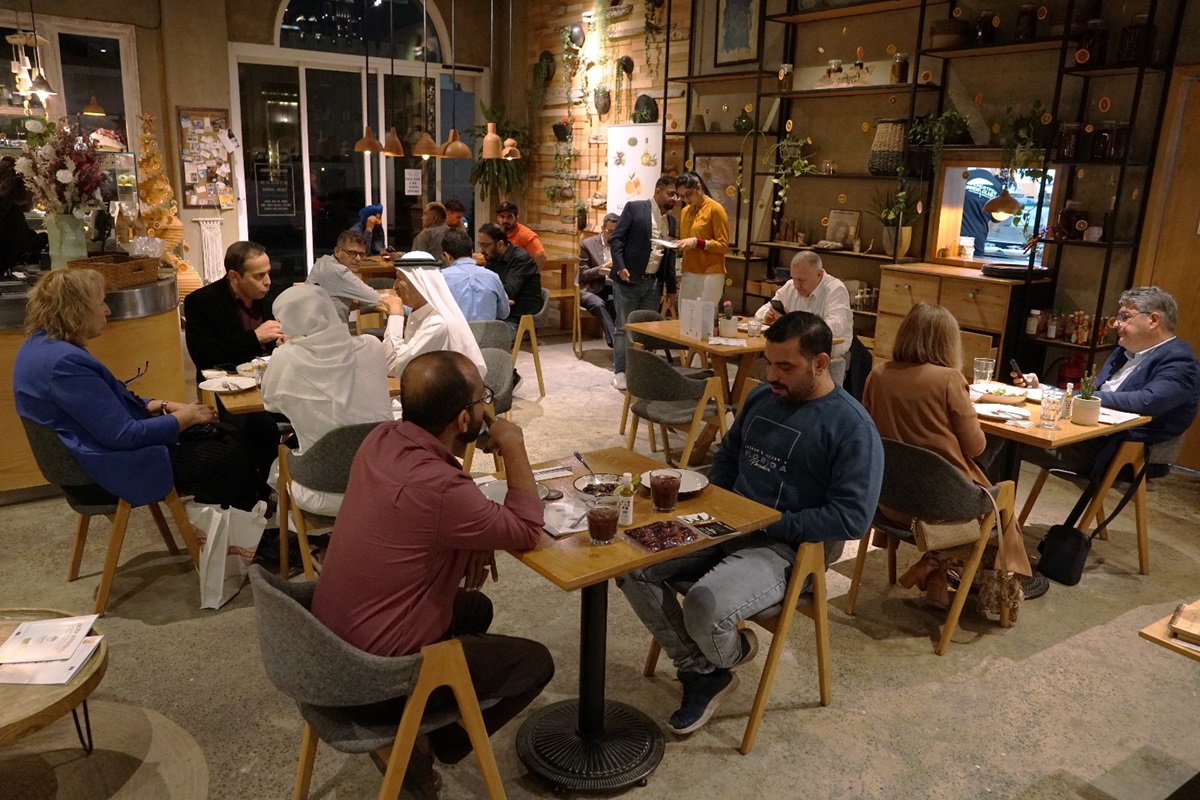Swiss timepiece designer Aramedes has launched a unique watch to appeal to Muslims, the company announced. The Mecca Collection incorporates functions that support Muslims in observing the key practices of their religion.
In order to practice the Islamic faith, one must know the direction to Mecca (Qibla), the daily prayer times (Salah), and the fasting times during Ramadan (Sawm).
“We were fascinated by the idea that a watch could accomplish these tasks,” says Pascal Stübi, Co-Founder & Chief Idea Officer (CIO). “The only question was how to do it.”
For the latest headlines, follow our Google News channel online or via the app.
Due to the complex calculations required and the real-time adjustments of the indications, it is impossible to create these functions in a traditional mechanical movement.
To solve this problem, the Aramedes team designed and developed a high-tech electronic component that is integrated into the watch case along with the mechanical movement. The associated software calculates the location of the wearer via mobile radio triangulation, and the watch displays the information on sub-dials.
The watch owner uses the Mastertimer phone app to initialize and calibrate the watch, connecting it via Bluetooth by using the pusher at 2 o’clock on the watch case. Once calibrated, the watch and its module work independently of the app and phone.
When the owner changes location significantly relative to Mecca, a notification appears on their phone asking the user if they’d like to update the location on the watch. Synchronization is as simple as opening the app.
Aramex co-founder Tom Morf explained that the inspiration for the watch came from a series of debates over lunch with his co-founder where they would always talk about the direction timepiece design was taking.
“Our discussion turned to the great achievements the Islamic world had over the course of history in mathematics, astronomy and many more things, and we spoke about the daily practice of prayer five times a day in the direction of Mecca, and their fasting once a year during the holy month of Ramadan,” he said.
“This was where it all started and where we became inspired to dig further. We wanted to know, is there anything like that that already exists in a premium luxury watch (there wasn’t), and how combining these three elements could be technically solved with great challenges,” he explained.
Given the basis of the teachings of Islam a timepiece that encompasses all the themes of the religion seems obvious, yet never happened until the launch of the Mecca Collection.
“I think because religion is a topic which can be quite sensitive, but we treated this with utmost respect and worked closely with Muslim contacts of ours,” Morf said.
In keeping with the Aramedes philosophy of simple and functional design, the watch box is crafted in Switzerland from entirely sustainable materials. It is fitted with a near-field communication (NFC) chip. The owner places their smartphone over the chip and is taken to a link to download and install the Aramedes Mastertimer App. Authenticity is assured by a micro-embossed seal, produced by a machine that is also used to create security features on Swiss banknotes.
With echoes of 1960s and ’70s style, the designs feature convex box-shaped sapphire crystals, and steel cases with curved lugs and a mix of brushed and polished finishes. Classical fine watchmaking details include sunray-brushed dials and applied hour markers.
The Aramedes Mecca Collection comprises four models, all in stainless steel cases, but platinum is available on request. The watch prices range from $6,000 to $163,000.
In addition to the Mecca Collection, Aramedes have the Zürich Collection in its portfolio that can appeal to non-Muslims. “We’ve seen a great response to this purely mechanical collection, and we also want to work on other subjects too, and we’re glad that we have the technology now to do so.”
Read more:
Barbados declares ‘diamond’ Rihanna a national hero during republican celebrations
Investigators track ammunition in fatal Alec Baldwin film set shooting
UAE’s 50th National Day celebrations to focus on ties between people, their homeland


 World3 years ago
World3 years ago
 World2 years ago
World2 years ago
 Entertainment7 years ago
Entertainment7 years ago
 World7 years ago
World7 years ago
 Entertainment7 years ago
Entertainment7 years ago





